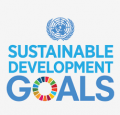



The Regional Environmental Centre for the Caucasus (REC Caucasus) commits to support the South Caucasus countries in environmental reporting and monitoring. REC Caucasus commits to support the creation of database based on Shared Environmental Information system principles in order to establish better monitoring systems. In addition, REC Caucasus will improve public participation in the decision-making process for a better environment. The commitment will lead to the design of the integrated approaches, instruments and tools helpful to the process of monitoring and reporting on achieved results in South Caucasus countries.
The commitment falls under focus area 9 of the Batumi Initiative to promote public participation and education for sustainable development.
Implementing partners will include Implementing partners will include National partners including state statistics committees, ministries of economy, and ministries of the environment protection, ministries of education, as well as small and medium enterprises, civil society organisations, and relevant international organisation and projects.
The commitment is relevant to SDG 17.

Regional Environmental Centre for Central Asia (CAREC) commits to support Central Asian countries in the establishment and integration of environmental accounting to their national accounting systems in order to better measure natural capital. The commitment will result in the accept and implementation of environmental accounting to measure natural capital and progress towards a green economy.
The commitment falls under focus area 1 and 2 of the Batumi Initiative to improve the measurement and valuation of natural capital; to promote internalisation of negative externalities and the sustainable use of natural capital.
Implementing partners will include national partners including state statistics committees, ministries of economy, and ministries of the environment protection.
The commitment is relevant to SDGs 12 and 15.

Regional Environmental Centre for Central Asia (CAREC) commits to support Central Asian countries on reporting and developing integrated approaches on the realisation of United Nations Economic Commission for Europe (UNECE) Conventions. The commitment will result in the design of integrated approaches, instruments and tools for the process of monitoring and reporting on achieved results in Central Asian countries.
The commitment falls under focus area 6 of the Batumi Initiative to promote green and fair trade.
Implementing partners will include national partners including state statistic committees, ministries of economy, and ministries of environmental protection.
The commitment is relevant to SDGs 3, 6, 14, and 15.

CAREC commits to support central Asian countries on environmental reporting, monitoring and database creation based on Shared Environmental Information System (SEIS) principles in order to establish better monitoring systems for the environment. The commitment aims to improve public participation in the decision-making process for a better environment. The commitment will results in the design of integrated approaches, instruments and tools assisting in monitoring and reporting on achieved results.
It falls under focus area 9 of the Batumi Initiative to promote public participation and education for sustainable development.
Implementing partners will include national partners including states statistic committees, ministries of economies and ministries of environmental protection.
The commitment is relevant to SDG 17.

The Regional Environmental Centre for the Caucasus (REC Caucasus) commits to support the South Caucasus (Armenia, Azerbaijan and Georgia) countries on SDGs implementation and monitoring. The commitment will produce input to the Environment for Europe process and to national strategic plans of South Caucasus countries.
The commitment falls under focus areas 1, 2, 3, 4, 6, 7, 8, and 9 of the Batumi Initiative to Improve the measurement and valuation of natural capital; promote the internalization of negative externalities and the sustainable use of natural capital; enhance ecosystems and ecosystem services as part of ecological infrastructure; shift consumer behaviours towards sustainable consumption patterns; Promote green and fair trade; increase green and decent jobs, while developing the necessary human capital; improve access to services, healthy living and well-being; promote public participation and education for sustainable development.

The International Resource Panel (IRP) commits to support the implementation of the Pan-European Strategic Framework for Greening the Economy and contribute to the achievement of the Sustainable Development Goals (SDGs). IRP is a science-policy platform set up by the United Nations Environment Programme (UNEP) in 2007 to build and share the knowledge needed to improve our management of natural resources worldwide. Under this commitment, IRP will provide independent, coherent and authoritative scientific assessments of the sustainable use of natural resources and in particular their environmental impacts over the full life cycle and contribute to a better understanding of how to decouple economic growth from environmental degradation.
The commitment will result in a scientific basis for actions to decouple economic growth from environmental degradation. The provided information will facilitate the choice of environmentally friendly technologies and production systems as well as the adaptation or design of necessary institutional processes that contribute to a sound economic and social development.

Sweden commits to make visible the values of ecosystem services. The Swedish government in 2014 adopted a national milestone target on the importance of biodiversity and the value of ecosystem services. The target stipulates that, by 2018, the importance of biodiversity and the value of ecosystem services are to be generally known and integrated into economic positions, political considerations and other decisions in a society where it is relevant and reasonable to do so. This target is part of the updated national strategy and action plan on biological diversity, which is embedded in the system of Environmental Quality Objectives adopted by Parliament. The target contributes to the global Strategic Plan for Biological Diversity 2011-2020 targets that were adopted by the Convention on Biological Diversity in 2010. The expected long-term effect of the milestone target is the creation of mechanisms that secure the capacity of ecosystems and provides incentives for a sustainable management of biological diversity.
